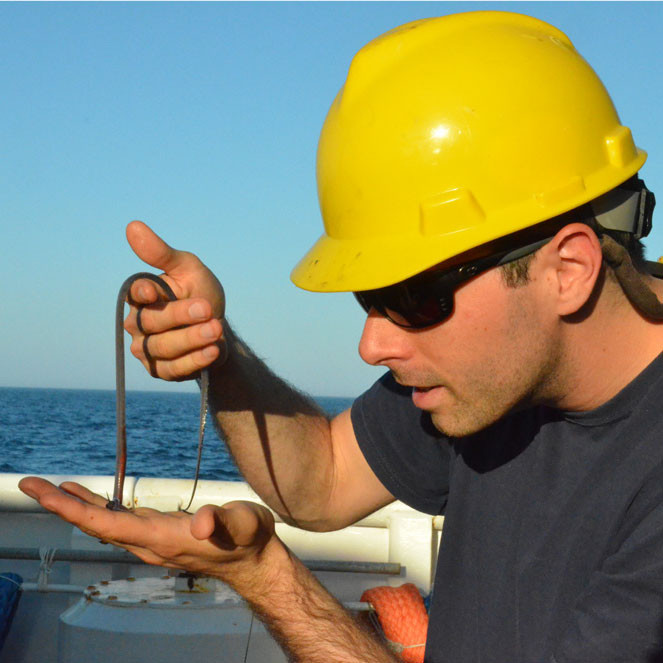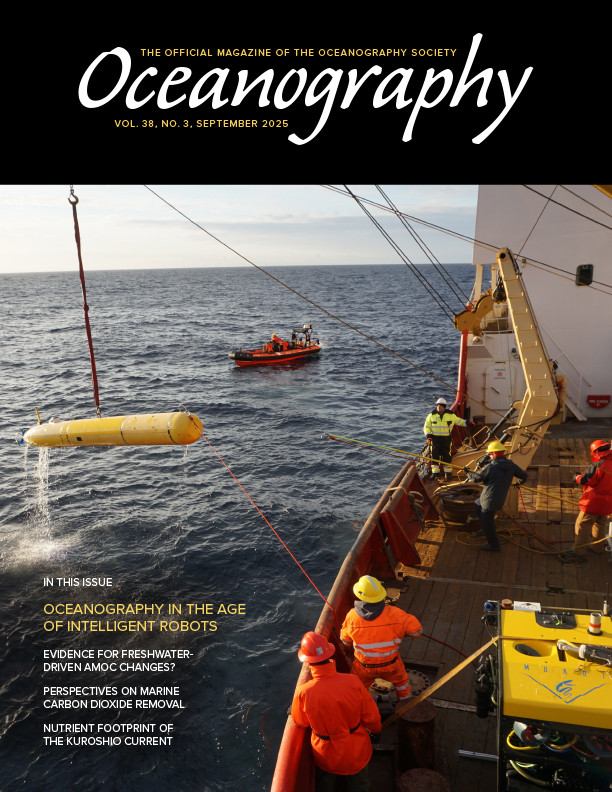First Paragraph
 |
Brian Kennedy, Chief Scientist, Ocean Discovery League
Degree: When, where, what, and in what field?
I earned a bachelor’s degree in marine biology from the College of Charleston in 2009. After that, I took an eight-year break from academia to work for the National Oceanic and Atmospheric Administration (NOAA). Nearly a decade into my government service, I decided to pursue a childhood dream of earning a PhD. I left the federal government and spent five years in graduate school at Boston University, where I earned a doctorate in marine ecology.
Did you stay in academia at all, and if so, for how long?
In a way, I’ve always been in and out of academia, even though I only spent a few years in a traditional academic setting. Throughout my time at NOAA and in various nongovernmental organization (NGO) roles, I’ve consistently collaborated with academic researchers and been part of peer-reviewed science publications. So, while my CV doesn’t follow the typical academic trajectory, I’ve managed to keep some of the best parts of academia—like pursuing my research interests and satisfying my curiosity—without always being based at a research university.
How did you go about searching for a job outside of the university setting?
I’ve been very fortunate that most of my jobs have evolved organically from one opportunity to another. During my undergraduate studies, I worked on several projects closely tied to NOAA, which opened doors for me there. After graduating from the College of Charleston, I knew I wanted to go to graduate school eventually, but I needed a break. I applied to the NOAA Corps, got accepted, and what I thought would be a short-term job turned into a series of NOAA-related roles that lasted eight years.
During that time, I met a principal investigator at Boston University who later invited me to join her lab for graduate studies. When I started looking for post-PhD positions, one of my long-time collaborators was launching an NGO and invited me to join her team.
Is this the only job you’ve had post-academia? If not, what else have you done?
I’ve had several jobs throughout my career—many of them interconnected. While at NOAA, my job responsibilities changed frequently. Sometimes that was intentional, and other times I simply found myself doing something completely different than what I was originally hired for.
My first post-bachelor’s role was as a junior officer in the NOAA Corps, where I was primarily responsible for the safe navigation of a NOAA research vessel. NOAA provided all the training, and I spent two years living aboard a ship, driving it, and maintaining safety equipment. During off-hours, I worked with the onboard science team, learning about sonar systems and remotely operated vehicles.
From there, I moved into a role at NOAA’s Office of Ocean Exploration, where I worked more directly with ocean technologies. I continued going to sea, but now focused more on supporting science operations rather than ship operations. Later, I transitioned into technology development and eventually into program administration—managing teams and budgets. But I realized I was getting too far removed from the science itself, which led me to pursue my PhD.
What is your current job? What path did you take to get there?
I’m currently the Chief Scientist at the Ocean Discovery League (ODL), a nonprofit organization focused on accelerating deep-sea exploration by developing accessible ocean technologies and expanding the community of people engaged in deep-sea science.
At ODL, I work with engineers to help define scientific requirements for new, lower-cost technologies. I also help develop curricula and lead training sessions for workforce development and capacity-building workshops related to deep-sea science.
In addition to my work at ODL, I serve as the external science advisor for NOAA’s Beyond the Blue: Illuminating the Pacific exploration campaign. In that role, I help NOAA build connections with academic researchers and Pacific Island communities, and I advise on exploration priorities and data products.
In my free time, I also work on my own research interests. Over the 15 years since earning my bachelor’s degree, my career has taken many twists and turns. Sometimes I’ve been deeply involved in scientific work; other times I’ve played more administrative roles. But all those experiences have given me a broad understanding of what it takes to do meaningful science—from standing bridge watch on a research vessel to trying to stretch a program budget just a little further. Science takes a whole ecosystem of people, and I’ve been lucky to see that from many different angles.
What did your oceanographic education (or academic career) give you that is useful in your current job?
It’s hard to do science without a solid understanding of prior work and established methods. The part of my education I rely on most is the extensive reading I did in graduate school—both foundational ecological theory and applied methods. That background helps me stay grounded and build effectively on existing knowledge.
Is there any course or training you wish you had during graduate school to better meet job market demands?
I always feel like I could use more statistics. I took several statistics courses during my education, but I wish I’d taken even more. A strong stats foundation is incredibly useful, no matter what area of science you go into.
Is the job satisfying? What aspects do you like best or least?
Yes, I find the job very satisfying. I still get to do my own science, but I also work on projects that bring new people into the field and make deep-sea science more accessible. It’s a really nice balance of doing science and enabling others to do it, too.
Do you have any recommendations for new grads looking for jobs?
Two things come to mind. First, practice polite persistence. Advocate for yourself, even if you’re being ignored at first. No one will care about your career as much as you do, so you need to follow up—sometimes that means emailing the same person multiple times until you get a response. The key is to be persistent without being a pest. It’s a delicate balance, but crucial.
Second, find something you’re really good at and lean into it. Develop a specific, marketable skill—like GIS or data analysis—that sets you apart. These skills are useful across many sectors and show your commitment to learning. Becoming an expert in something that others find difficult can really help you stand out.

